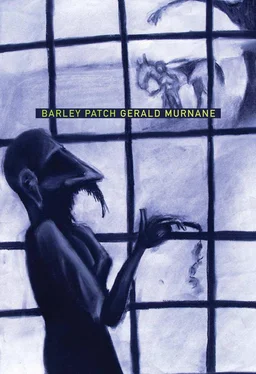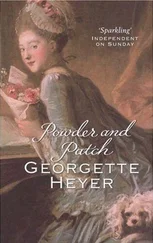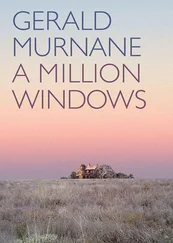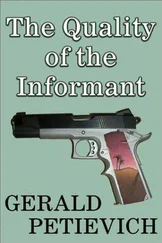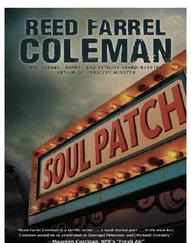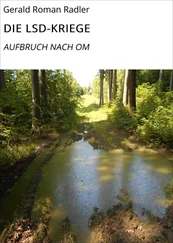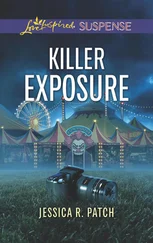Gerald Murnane - Barley Patch
Здесь есть возможность читать онлайн «Gerald Murnane - Barley Patch» весь текст электронной книги совершенно бесплатно (целиком полную версию без сокращений). В некоторых случаях можно слушать аудио, скачать через торрент в формате fb2 и присутствует краткое содержание. Год выпуска: 2011, Издательство: Dalkey Archive Press, Жанр: Современная проза, на английском языке. Описание произведения, (предисловие) а так же отзывы посетителей доступны на портале библиотеки ЛибКат.
- Название:Barley Patch
- Автор:
- Издательство:Dalkey Archive Press
- Жанр:
- Год:2011
- ISBN:нет данных
- Рейтинг книги:5 / 5. Голосов: 1
-
Избранное:Добавить в избранное
- Отзывы:
-
Ваша оценка:
- 100
- 1
- 2
- 3
- 4
- 5
Barley Patch: краткое содержание, описание и аннотация
Предлагаем к чтению аннотацию, описание, краткое содержание или предисловие (зависит от того, что написал сам автор книги «Barley Patch»). Если вы не нашли необходимую информацию о книге — напишите в комментариях, мы постараемся отыскать её.
Barley Patch — читать онлайн бесплатно полную книгу (весь текст) целиком
Ниже представлен текст книги, разбитый по страницам. Система сохранения места последней прочитанной страницы, позволяет с удобством читать онлайн бесплатно книгу «Barley Patch», без необходимости каждый раз заново искать на чём Вы остановились. Поставьте закладку, и сможете в любой момент перейти на страницу, на которой закончили чтение.
Интервал:
Закладка:
I can hardly believe nowadays that I wrote for thirty years and more before I arrived at the decision reported in the fourth paragraph of this piece of fiction: before I gave up a certain sort of writing. I can only suppose that I wrote during those thirty and more years so that I could explicate whatever mysteries seemed to require explication in the territory bordered on three sides by the vaguest of my memories and my desires and on its fourth side by a strangely lit horizon in a remembered reproduction of some or another famous painting. I can only suppose that I wrote fiction for thirty and more years in order to rid myself of certain obligations that I felt as a result of my having read fiction. Something else I can hardly believe nowadays: during those thirty and more years, I sometimes recalled my childhood ploy of seeing, or seeming to see, places further off than certain painted places, and yet what I recalled seemed quite unconnected with what I was doing as a writer of fiction. Not until the afternoon mentioned in the fourth paragraph of this piece of fiction did I understand how many were the blank pages; how ample was the space on the far side of every piece of fiction that I had written or had read.
I can make one last attempt to answer the question why did I write what I wrote for thirty and more years? Perhaps I wrote in order to provide myself with the equivalent in the invisible world of Tasmania and New Zealand in the visible world.
I am not unwilling to travel on land. On a memorable occasion nearly fifty years ago, I travelled by land almost to the southern border of Queensland. A year afterwards, I travelled by land to the eastern shore of the Great Australian Bight. Even nowadays, I travel sometimes to the far west of Victoria; to a small town mentioned earlier in this piece of fiction. I do not however, travel through air or across water. I have several reasons for not travelling thus, but I mention here the only reason that belongs in this piece of fiction. My view of the world has in the foreground a roughly L-shaped tract of land reaching from Bendigo through Melbourne to Warrnambool. I look often across this foreground in my mind, and always in a westerly or a north-westerly direction. In the middle ground is mostly level grassy countryside not without trees or even stands of forest. In the background is the wider world, as I call it, which most often appears to me as a series of far-reaching plains. If ever I had wished to visit the wider world, I would have had to plan my route so that I could travel first through the foreground and then through the middle ground mentioned above.
I look often across my mind in a westerly or a north-westerly direction, but I am not unable to see in my mind what might lie behind me. I am not unable to see in a subdued light, as though they lie beyond not sea but coloured glass, the islands of Tasmania and New Zealand.
Once only, I dared to step off the solid land that comprises my nearer view of the world. I travelled across water from Melbourne to Tasmania in order to accept an invitation to a gathering of writers. On the night before I left Melbourne, I was unable to sleep. On the day of my departure from solid land, I began to drink beer. When I arrived on the boat or ship or vessel or whatever it was called, I was drunk, and I remained so during most of my time in Tasmania. I recall hardly anything of the landscape that I passed through while I was conveyed by motor-car from Devonport to Launceston and then, twenty-four hours later, back to Devonport. All this happened more than twenty years ago, but I still regret that I did not see the midlands of Tasmania.
For several years before my visit to Tasmania, I had corresponded with a young man who lived with his wife in a rented cottage in a small town in a district that he called the Midlands. (He never failed to use an upper-case “M” in his letters.) The man had been, some years before, a student in my fiction-writing classes and was still writing fiction in his rented cottage, which, so he claimed in his letters to me, was at the very heart of the Midlands. I had seen a few photographs of lakes and seashores and mountains in Tasmania before I had begun writing letters to my former student, but I had never seen in any photograph any landscape such as he described in one of his letters to me. When I read in that letter that he had travelled on a day of sunshine and cold breezes to a place out of sight of his rented cottage and had looked all around him at the silent, level land and had lost all sense that he lived on a large island surrounded by the Southern Ocean, I had supposed that my friend was reporting not an actual experience but something imagined. (As a teacher of fiction-writing, I had always been ready to believe that some of my students had been possessed of imagination, although I was never comfortable when the word came up in discussions.)
As for New Zealand, I had never supposed that I could travel thither, but if ever I had been able to get aboard a tramp-steamer that could take me and my cargo of beer from Melbourne to Dunedin or to Christchurch, I would have wanted only to look at the Canterbury Plains before I found a ship that would take me back across the Tasman Sea. A student of mine during the late 1980s, a young woman, had written in a piece of fiction a few paragraphs about the landscape around her birthplace, which was a town named Geraldine. If I were to report in this piece of fiction my feelings towards the young woman, some readers might suppose that I had fallen in love with the young woman. In fact, during the years when I was a teacher of fiction-writing I felt towards many a female student of mine what I felt towards the young woman from Geraldine. I would begin to feel thus while I was reading one or another piece of fiction written by the woman in question. In the presence of the woman, I would feel hardly otherwise than I felt towards any other student of mine. At all times, I did my best to ensure that my admired female students would not divine my feelings towards them. At all times too, I did my best not to treat any admired student more favourably than I treated my other students. And yet, whenever I was reading certain passages of fiction written by the admired student I became anxious on her account. I wanted no sadness or anxiety to be visited on her. I wanted the course of her life to be untroubled. I wanted her to succeed as a writer of fiction, to fall in love only with persons worthy of her, and always to feel connected with some or another remembered or longed-for landscape. When I learned one day that the young woman from Geraldine had a husband who had been born in Melbourne, I hoped that he was worthy of her, by which I meant that I hoped he would one day visit the Canterbury Plains as a pilgrim in earlier times might have visited a remote shrine; would one day look all around him at the silent, level land and would lose all sense that he was standing on a large island bounded on the one side by the Tasman Sea and on the other by the Pacific Ocean.
Sometimes, when I was trying to report in one or another passage in my fiction the connection between one or another fictional personage and one or another fictional landscape, I would suppose that one or another of my readers might later have overlooked the passage that I was trying to write in the same way that I had overlooked the foreground and the middle-ground and even the background of the painting mentioned not long before in this piece of fiction and might have seemed to see behind my fiction, as it were, a semblance of the Midlands of Tasmania or of the Canterbury Plains of New Zealand.
But to speak plainly, an imagination would surely be of benefit to a writer.
A famous writer in the United States of America wrote during my lifetime a bulky book of fiction set, as the expression goes, in ancient Egypt. To speak plainly, the author must have exercised his imagination strenuously while he wrote. I felt no more urged to read his book than I have felt urged to read any of the many books of fiction written by contemporaries of mine in this country and set in earlier times. If ever I had been curious about the daily doings of the ancient Egyptians or about the contents of their minds, I would much rather have done my own speculating here in this suburb of Melbourne than trust the speculations of someone in New York City. Likewise, on the few occasions when I have found myself daydreaming about some or another Australian bushranger or so-called historical figure, I have never felt urged to check the details of my musings against the imaginings, to speak plainly, of some or another present-day novelist.
Читать дальшеИнтервал:
Закладка:
Похожие книги на «Barley Patch»
Представляем Вашему вниманию похожие книги на «Barley Patch» списком для выбора. Мы отобрали схожую по названию и смыслу литературу в надежде предоставить читателям больше вариантов отыскать новые, интересные, ещё непрочитанные произведения.
Обсуждение, отзывы о книге «Barley Patch» и просто собственные мнения читателей. Оставьте ваши комментарии, напишите, что Вы думаете о произведении, его смысле или главных героях. Укажите что конкретно понравилось, а что нет, и почему Вы так считаете.
